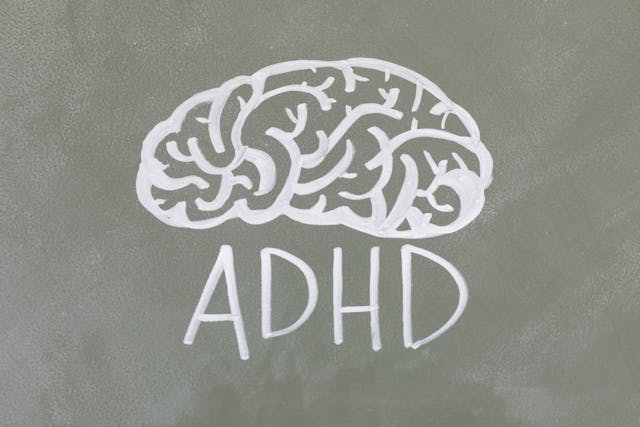Navigating the educational landscape can be particularly challenging for students with Attention Deficit Hyperactivity Disorder (ADHD). Traditional classrooms often lack the tailored approaches necessary to address their unique needs, leaving many students struggling to keep pace with their peers.
Many specialized schools now offer environments specifically designed to foster learning and development for children with ADHD. By implementing individualized teaching strategies, creating structured routines, and providing supportive resources, these institutions help students thrive academically and empower them socially and emotionally. Take a closer look at how specialized schools support students with ADHD and why they are an invaluable resource for these individuals.
Individualized Education Plans (IEPs)
Individualized Education Plans (IEPs) aim to support students with ADHD in specialized schools. An IEP is a tailored educational blueprint that outlines specific learning goals and the accommodations necessary to achieve them. This plan is developed through collaboration between educators, parents, and specialists, ensuring that each child’s unique strengths and challenges are considered. Key components often include modified assignments, additional time for tests, and access to resources such as therapy or tutoring. Look into local schools like Ponte Vedra Beach schools for more information on IEPs and how they can benefit students with ADHD. Their experience and knowledge can help guide students to achieve their full potential.
Multisensory Learning Approaches
Multisensory learning approaches are integral in specialized schools for students with ADHD, as they engage multiple senses to enhance understanding and retention of information. By incorporating visual, auditory, and kinesthetic activities, educators can create a more dynamic learning experience that caters to diverse learning styles.
Using interactive tools such as manipulatives for math or visual aids for reading allows students to connect concepts with tangible experiences. The use of technology, such as virtual simulations or educational games, can also provide an engaging and interactive learning environment for students with ADHD.
Smaller Class Sizes
Specialized schools typically have smaller class sizes, creating a more personalized learning experience for students with ADHD. With fewer students in the classroom, teachers can provide more individual attention and tailor instruction to meet each student’s needs.
Smaller class sizes also allow for a quieter and less distracting environment, reducing sensory overload for students with ADHD. It’s not uncommon for specialized schools to have a lower student-to-teacher ratio, with some even offering one-on-one instruction.
Structured Routines
Structured routines are a cornerstone of the educational experience in specialized schools for students with ADHD. Consistency in daily schedules helps to create a sense of stability and predictability, which can significantly reduce anxiety and improve focus. Once educators manage to set clear expectations for each part of the school day, they guide students in developing the self-regulation skills needed to navigate challenges effectively.
Specialized schools often use visual schedules, checklists, and timers to reinforce routines, making it easier for students to understand what is expected of them. These tools aid in transitioning between activities so that students to mentally prepare for upcoming tasks. Structured routines enable educators to teach important skills such as time management, organization, and prioritization, all essential for academic success and life beyond school.
Behavioral Support Programs
Behavioral support programs are another important component of specialized schools for students with ADHD. These programs provide students with strategies and tools to manage their behavior, develop coping mechanisms for challenges, and improve social skills.
Through individual or group therapy sessions, students can learn techniques such as mindfulness, positive self-talk, and conflict resolution. These skills will be sure to benefit academic performance and support overall mental health and well-being.
Social Skills Development
Social skills development is a critical focus within specialized schools for students with ADHD, as these individuals often face challenges in interpersonal interactions. Educators implement specific programs and activities designed to foster communication, cooperation, and conflict resolution among peers. By creating a supportive environment where students can practice these skills, schools help them build meaningful relationships and navigate social situations more effectively.
Role-playing exercises, group projects, and peer mentoring initiatives serve as valuable tools in encouraging positive social exchanges. These activities reinforce the importance of teamwork and empathy while providing students with safe spaces to express themselves and learn from one another. The confidence gained through these interactions can positively impact academic performance and overall self-esteem.
Flexible Learning Environments
Flexible learning environments are designed to adapt to the diverse needs of students with ADHD, allowing for a more personalized educational experience. These environments often feature movable furniture, varied seating options, and designated quiet spaces, enabling students to choose the setting that best suits their learning style at any given time.
Educators are also able to implement various teaching methods, alternating between group work, independent study, and hands-on projects, which maintain engagement and cater to different attention spans.

Specialized schools are designed to support students with ADHD by offering tailored approaches that address their unique learning needs. From individualized education plans to flexible learning environments, these institutions foster an atmosphere conducive to academic and personal growth.
By prioritizing structured routines, behavioral support, and social skills development, specialized schools enhance educational outcomes and, most importantly, empower students to navigate their world with confidence and resilience. Embracing the specific requirements of these learners creates a foundation for future success and fosters a nurturing community where they can truly thrive.







